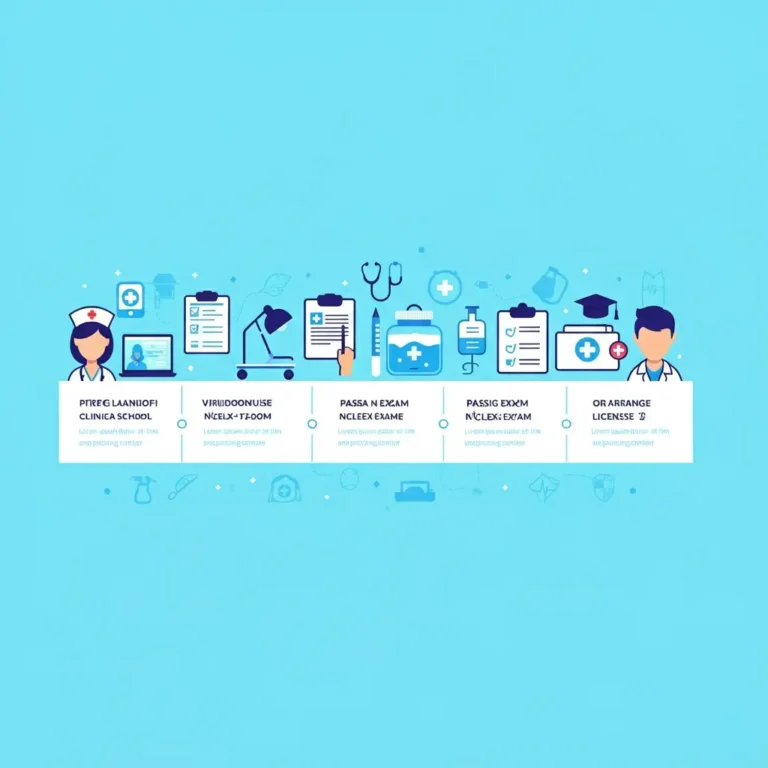How Long Does It Take to Get ECE Certification?
When it comes to advancing in your career or professional development, obtaining an ECE (Early Childhood Education) certification can be a significant step. However, one common question that arises is, “How long does it take to get ECE certification?” The timeline for achieving this certification can vary based on several factors, including the specific requirements of the program, the type of certification, and your circumstances.
In this blog post, we’ll delve into the various aspects of ECE certification, the factors that influence the time required, and what you can expect as you navigate the certification process. Whether you’re just starting or you’re considering advancing your career, gaining a comprehensive understanding of the timeline and process for ECE certification will empower you to prepare effectively.
Table of Contents
Introduction to ECE Certification
The field of early childhood education (ECE) is not just an area of study and practice, but a vital role in society. ECE professionals play a pivotal role in shaping the early years of a child’s life, a responsibility that can significantly impact their development and future success. This inspiring mission is what motivates many to pursue ECE certification.
ECE certification is a formal recognition that an individual has met the necessary education and training requirements to work as an early childhood educator. In many regions, such as the United States and Canada, ECE certification is a mandatory credential to work in public or private childcare centers, schools, and other educational settings for young children.
Factors That Impact the Duration of ECE Certification
Type of Certification
The time it takes to earn ECE certification depends largely on the specific certification you are pursuing. There are several types of certifications within the field, each with its requirements.
- Child Development Associate (CDA): The CDA certification is one of the most common entry-level credentials for those working in early childhood education. It typically requires 120 hours of coursework and 480 hours of hands-on experience working with children. You can expect this certification to take anywhere from six months to a year to complete, depending on the pace at which you finish your coursework and complete your practical experience.
- Associate Degree in Early Childhood Education: If you choose to pursue a full associate degree, the timeline for certification will be longer. This typically involves completing a two-year program, which includes both coursework and hands-on practice.
- Bachelor’s and Master’s Degrees: For those looking to take their education further, a bachelor’s or master’s degree in early childhood education may be the right path. A bachelor’s degree generally takes four years to complete, while a master’s degree can take an additional two years, depending on your educational background and schedule.
- State-Specific Certifications: Some states or provinces have their unique certification programs with specific timelines. These can vary, but typically include both coursework and supervised teaching experience.
Level of Education and Experience
Another key factor that impacts how long it takes to get ECE certification is your existing educational background and professional experience. Individuals who already hold a degree in education or a related field may find that they can fast-track their certification process, as they may have already completed much of the coursework required for certification.
On the other hand, individuals who are starting from scratch with no prior education in early childhood development may need more time to complete their studies and gain the necessary experience.
Typical Timeline for ECE Certification
Short-Term Programs
For those who are looking to enter the field of early childhood education quickly, short-term programs such as the Child Development Associate (CDA) certification can be a great option. The CDA program is designed for those who already have some experience working with children. The program typically takes between six months to a year to complete, depending on your pace and availability.
- Coursework Requirements: You’ll need to complete 120 hours of coursework, which covers topics like child development, teaching strategies, and safety.
- Experience Requirements: Additionally, the CDA requires 480 hours of experience working directly with children in an educational setting. This could be achieved by working part-time or full-time in a daycare center or similar institution.
- Assessment: The final part of the CDA certification process involves a written exam and a portfolio review, both of which can be done at your own pace.
Long-Term Programs
For those pursuing a more comprehensive path to ECE certification, associate and bachelor’s degrees are the way to go. These programs typically last two to four years, depending on your chosen degree level and study schedule.
- Associate Degree: A typical associate degree in early childhood education takes two years to complete. These programs usually combine general education courses with specific training in early childhood education techniques, child psychology, and teaching methods.
- Bachelor’s Degree: If you decide to pursue a bachelor’s degree, it will typically take four years of full-time study to graduate. This program will go deeper into early childhood development, psychology, and education theory.
- Master’s Degree: For those who are looking to specialize further or move into leadership roles within the ECE field, a master’s degree typically takes two years after completing a bachelor’s degree.
Steps to Get ECE Certification
The process of becoming certified as an early childhood educator generally involves several key steps:
Educational Requirements
The first step in earning ECE certification is completing the required education. The specific education required depends on the certification you are pursuing. This could involve completing a short course, an associate degree, or a bachelor’s degree in early childhood education.
Practical Experience
In addition to completing coursework, most certification programs require hands-on experience in the field. This experience could be obtained by working at a childcare center, preschool, or elementary school under the supervision of experienced educators.
Certification Exams
Once you have met the education and experience requirements, you will typically need to pass one or more exams to obtain your certification. This could include written exams and portfolio assessments that test your knowledge and practical skills.
Accelerating Your Path to ECE Certification
If you’re eager to get certified as quickly as possible, there are several strategies you can use to speed up the process:
- Take Online Courses: Online courses often offer more flexible schedules, allowing you to complete coursework at your own pace. Online programs may also allow you to complete your certification faster.
- Prioritize Hands-On Experience: The more hours you can dedicate to working with children, the quicker you will accumulate the required experience. Look for opportunities to volunteer or work part-time in educational settings.
- Transfer Credits: If you have previous college credits or relevant experience, check if they can be transferred to your certification program. This can reduce the amount of coursework you need to complete.
What to Expect During the Certification Process
Throughout the certification process, you can expect to learn various child development theories, teaching strategies, and classroom management techniques. You will also be expected to demonstrate your skills through practical experience.
Expect to spend time in the classroom, either as a student or through student-teaching assignments. You’ll show that you can work with children of various ages and backgrounds and be able to handle diverse learning environments.
Common Challenges in Obtaining ECE Certification
The journey to becoming an ECE-certified professional can come with its challenges. These include:
- Balancing Work and Study: Many ECE certification programs require a significant amount of study time, and it can be not easy to balance this with work or personal commitments.
- Financial Costs: Some certification programs can be expensive, especially bachelor’s and master’s degrees. Look for scholarships or financial aid opportunities to help manage costs.
- Emotional Demands: Working with young children can be emotionally taxing, and some certification programs require students to work with children in challenging settings. It’s important to be mentally prepared for this aspect of the work.
How Long Does It Take to Get ECE Certification Online?
Online ECE certification programs have become increasingly popular due to their flexibility. The timeline for earning certification online is similar to traditional programs, but the main advantage is that you can complete the coursework at your own pace. Many online programs offer a range of timeframes for completion, from six months to a year for short-term certifications to two to four years for degrees.
FAQs about ECE Certification Timeline
How Long Does It Take to Complete a Child Development Associate (CDA) Certification?
The CDA certification typically takes about six months to one year to complete, depending on your schedule and the pace at which you complete the required coursework and hands-on experience.
Can You Get ECE Certification Faster by Taking Online Courses?
Yes, online courses offer more flexibility, which helps you complete coursework faster. However, you still need to fulfill the practical experience requirements, which may take time depending on your work schedule.
What Is the Fastest Way to Become an Early Childhood Educator?
The fastest route to becoming an early childhood educator is typically by earning a Child Development Associate (CDA) certification. This can take as little as six months to a year, depending on how quickly you complete the required coursework and experience hours.
Conclusion
In summary, the time it takes to get ECE certification depends on several factors, including the type of certification, your prior education and experience, and your schedule. While short-term certifications like the CDA can be completed relatively quickly, a full degree in early childhood education may take several years. Whether you choose a fast-track option or a longer program, becoming an ECE professional is a rewarding journey that can significantly impact the future of young learners.







